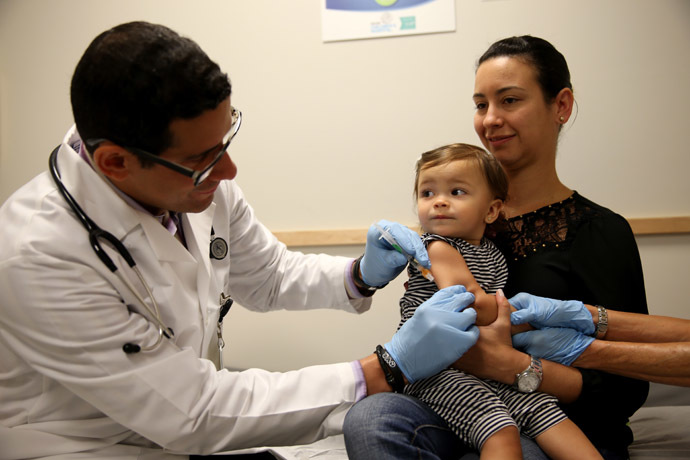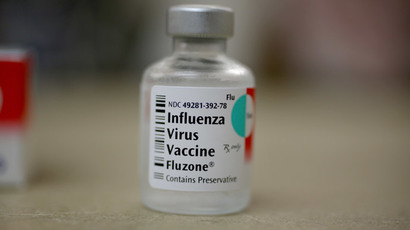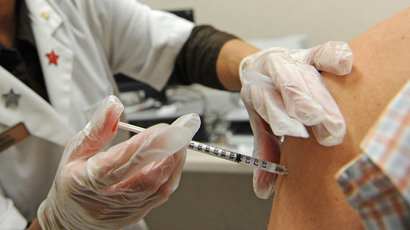Vaccines don’t cause autism, complications extremely rare – study

There is no evidence that immunizing vaccinations cause autism while any complications arising from their administration to children are extremely rare, new analysis comprised of 67 research studies has discovered.
“There is strong evidence that MMR (Measles, Mumps, and Rubella) vaccine is not associated with autism,” the study’s results said.
The study results are being announced just as there is a discernible rise in vaccine preventable diseases – especially in areas with low vaccination rates. Some 539 people spanning 20 states have been infected with measles already this year, reports the Centers for Disease Control and Prevention.
“This report should give parents some reassurance,” report co-author and pediatrician, Courtney Gidengil, told USA Today. The piece was published in Pediatrics on Tuesday, and examines 11 vaccines recommended for children under the age of six.
“There is a lot of misinformation out there about vaccines,” stated co-author Margaret Maglione. “With the rise of the Internet and the decline of print journalism, anyone can put anything on the Internet.”
Concerns about health risk of vaccinating their children have led some parents to decline recommended vaccinations, leading to the resurgence of maladies.
“We found evidence that some vaccines are associated with serious AEs; however, these events are extremely rare and must be weighed against the protective benefits that vaccines provide,” the report says, adding that “Vaccines are considered one of the greatest public health achievements of the 20th century.”

The study commissioned by Agency for Healthcare Research and Quality's (AHRQ), confirmed that childhood leukemia is not linked to vaccines and that hepatitis B vaccine does not lead to multiple sclerosis.
The review also confirmed that immunization against MMR in some rare cases could lead to increased risk of fever-related seizures in small children, but they cause no long-term problems, according to report.
Vaccines against rotavirus increase a risk of intussusception, in which part of the intestine slides into an adjacent part of the intestine. But again the probability of that happening are very slim with one to five cases of intussusception for every 100,000 doses administered.
“Fortunately, the adverse events identified by the authors were rare, and in most cases, would be expected to resolve completely after the acute event,” said an accompanying editorial by Carrie Byington, vice chair for research in the pediatrics department at the University of Utah. “This contrasts starkly with the natural infections that vaccines are designed to prevent, which may reduce the quality of life through permanent morbidities, such as blindness, deafness, developmental delay, epilepsy, or paralysis and may also result in death.”
In total, the new study examined 11 different immunizations: DTaP (diphtheria, tetanus and acellular pertussis), hepatitis A, hepatitis B, influenza, meningococcal, MMR (measles, mumps and rubella), varicella (chickenpox), Haemophilus influenza type b (Hib), pneumococcal, rotavirus and inactivated poliovirus vaccines.














